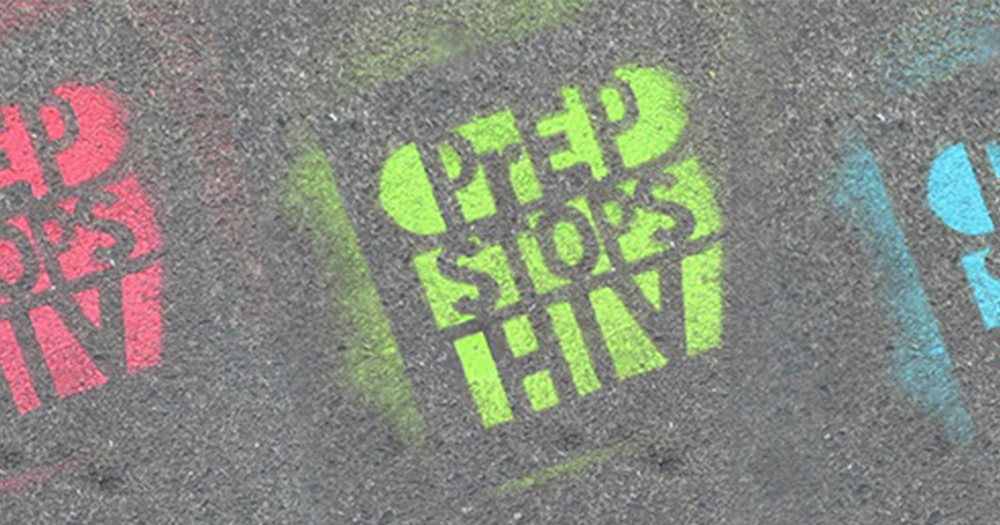Today, Sunday, April 7, is World Health Day and HIV activist group ACT UP Dublin are calling on the Department of Health and the HSE to end the ongoing neglect of public sexual health services in Ireland.
The focus of this year’s World Health Day campaign is universal health coverage, which the World Health Organization (WHO) identifies as its “number one goal.” That means “ensuring that everyone can obtain the care they need, when they need it, right in the heart of the community.” A key goal of the Department of Health’s National Sexual Health Strategy 2015-2020 is that “equitable, accessible and high-quality sexual health services that are targeted and tailored to need, will be available to everyone.”
Today is World Health Day and ACT UP Dublin are calling on the Department of Health and the HSE to end the ongoing neglect of public sexual health services in Ireland. #WorldHealthDay pic.twitter.com/AAt1Un3hgR
— ACT UP Dublin (@ActUpDublin) April 7, 2019
Today it is clear that public sexual health services in Ireland are falling far short of these goals and that increased funding is needed to expand the capacity and improve the accessibility of public sexual health services across the country.
ACT UP Dublin member Will St. Leger said, “In 2015, Leo Varadkar promised equitable, accessible and high-quality sexual health services in Ireland. Since then rates of STIs including HIV have roared to record levels. It is vital to public health that these services are given extra funding and expanded as a matter of urgency.”
Infrequent Services, Long Wait Times
10 counties have no public STI services at all, while others have clinics that are open only two days per month.
A survey of sexual health services in Ireland published in June 2018 by the HSE’s Sexual Health and Crisis Pregnancy Programme found that “there are inequities in service provision” with “significant differences across the country in terms of access and availability of services.” 10 counties have no public STI services at all, while others have clinics that are open only two days per month. The majority of public clinics have waiting lists, with some clinics reporting waiting times for appointments of as long as 6 and 7 weeks.
Even in the best-served areas like Dublin and Cork, attendees at walk-in clinics are regularly turned away due to lack of capacity, while those seeking appointments face waiting times of several weeks.
This is the list of the 10 counties in Ireland with no access to a public STI clinic.
Visit https://t.co/KWEmPs9fLU and tell your local TDs that this is unacceptable or tweet @LeoVaradkar and/or @SimonHarrisTD on #WorldHealthDay pic.twitter.com/BrNVKRAGZN
— ACT UP Dublin (@ActUpDublin) April 7, 2019
Statistics from the HPSC show that diagnoses of STIs like chlamydia, gonorrhoea, and syphilis are at historic highs, but just over a fifth of respondents to the most recent Healthy Ireland survey reported ever having had an STI test. The difficulty in accessing sexual health services certainly contributes to the low rate of STI testing, even as the need for testing is growing.
Inadequacies facing those who require sexual health testing in Ireland include limited or no access to services, stigma, lengthy waiting lists, lack of finances and month-long waits for test results.
PrEP in Ireland
As we approach the anniversary of these promises (for a national PrEP programme), ACT UP Dublin remains gravely concerned about the capacity of the country’s sexual health services to provide access to this highly effective prevention method.
Earlier this year the World Health Organization identified HIV as one of the 10 major threats to global health. WHO’S report, released in January, noted: “The progress made against HIV has been enormous in terms of getting people tested, providing them with antiretrovirals and providing access to preventive measures such as pre-exposure prophylaxis (PrEP).”
HIV diagnoses in Ireland reached a record high last year, with 528 reported cases in 2018 according to figures released by the HSE—a 7% increase from 2017. Currently, PrEP is available in Ireland by prescription, but it is not covered by the HSE so users must pay the full cost of the medication (€50-80 per month) themselves.
In June 2018 both the Taoiseach, Leo Varadkar, and the Minister for Health, Simon Harris, pledged to roll out a national PrEP programme in early 2019. The Health Information Quality Authority (HIQA) has been carrying out a Health Technology Assessment for a national PrEP programme since last year, with a final report expected by June. As we approach the anniversary of these promises, ACT UP Dublin remains gravely concerned about the capacity of the country’s sexual health services to provide access to this highly effective prevention method.
In a meeting with Minister for Health Simon Harris and representatives from HSE and the Department of Health in September 2018, members of ACT UP Dublin highlighted the critical role of HSE-funded sexual health services in delivering a national PrEP programme and the need for increased funding to expand the capacity and improve the delivery of those services. To date, there seems to have been little progress in this regard.
ACT UP Dublin is calling on the Minister to provide an update on how he plans to ensure this highly effective medication is available to anyone at risk of HIV no matter where in Ireland they live.
© 2019 GCN (Gay Community News). All rights reserved.
Support GCN
GCN is a free, vital resource for Ireland’s LGBTQ+ community since 1988.
GCN is a trading name of National LGBT Federation CLG, a registered charity - Charity Number: 20034580.
GCN relies on the generous support of the community and allies to sustain the crucial work that we do. Producing GCN is costly, and, in an industry which has been hugely impacted by rising costs, we need your support to help sustain and grow this vital resource.
Supporting GCN for as little as €1.99 per month will help us continue our work as Ireland’s free, independent LGBTQ+ media.
